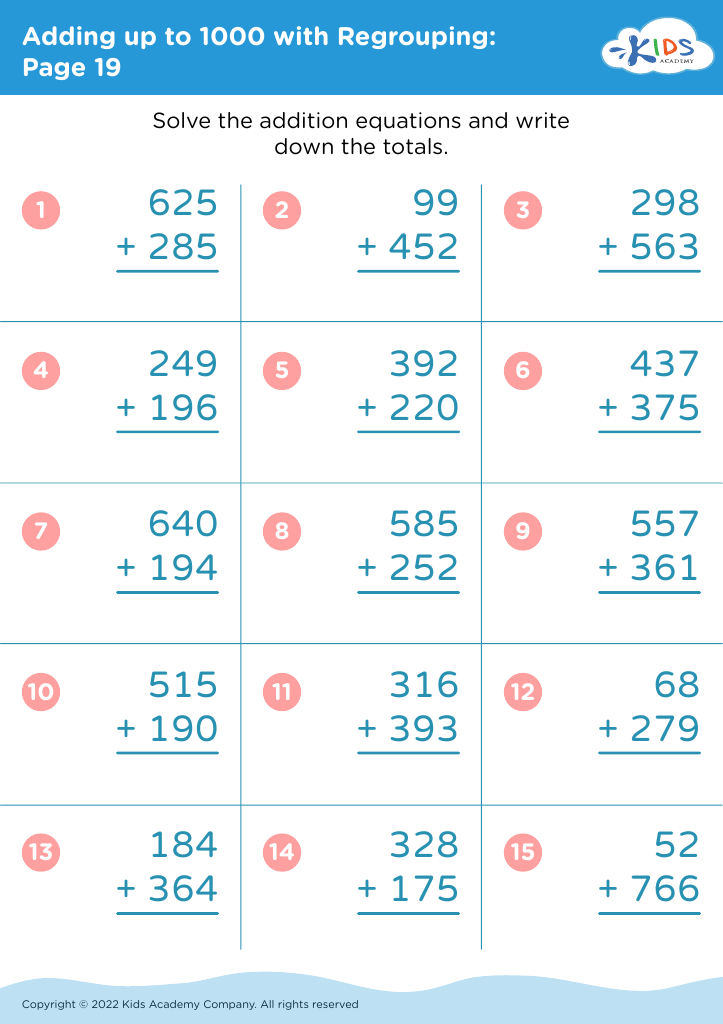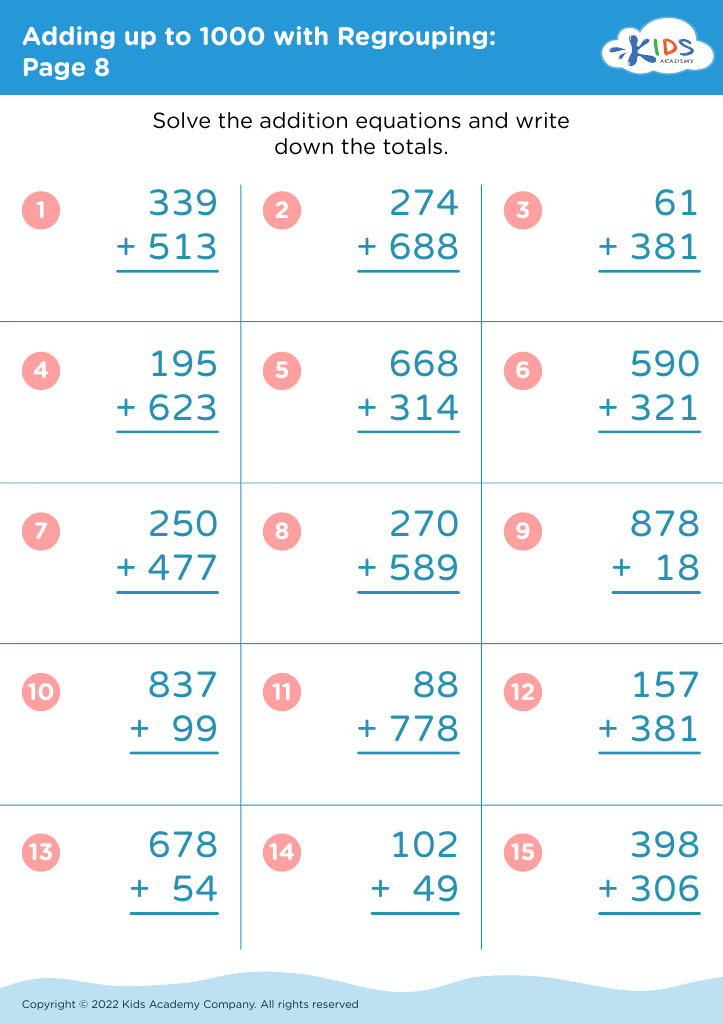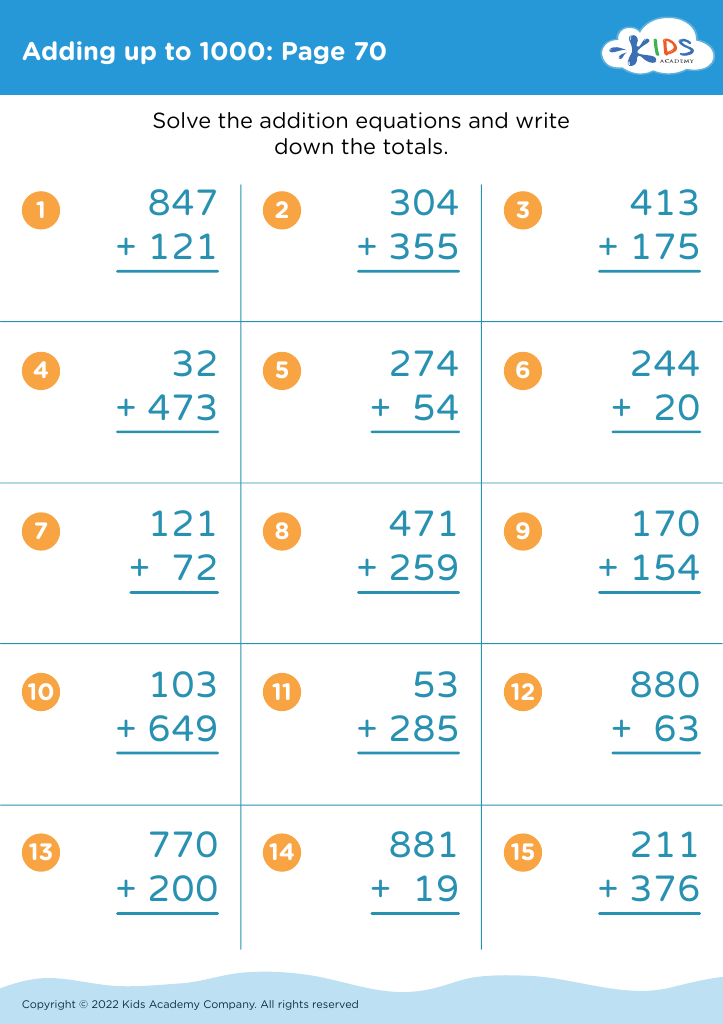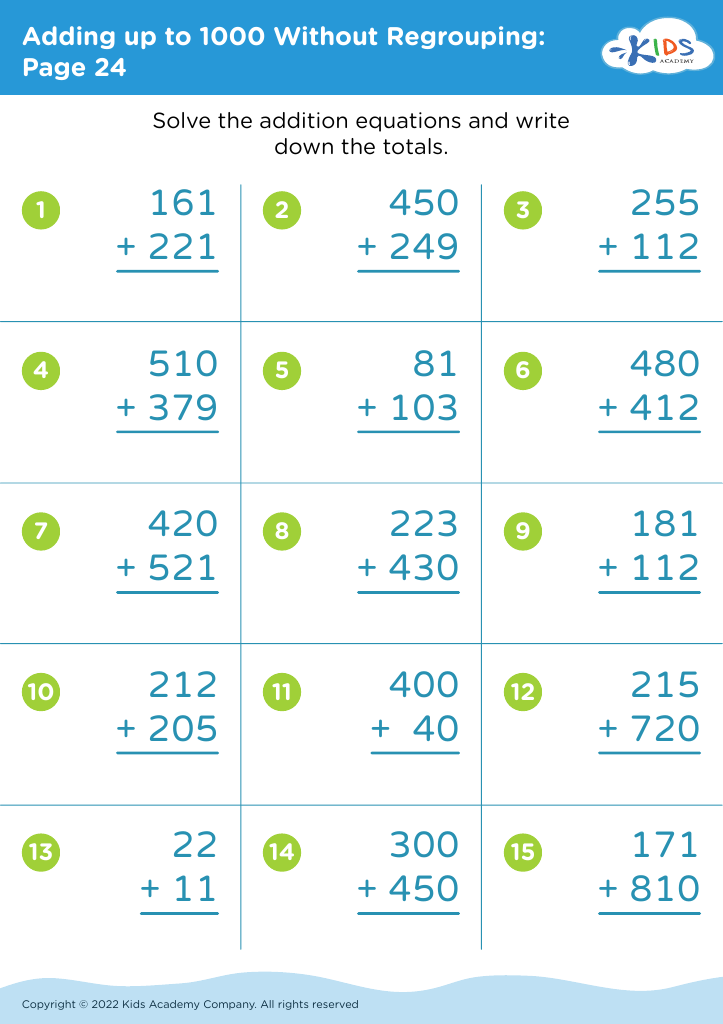Improving math skills Adding up to 1000 Worksheets for Ages 3-9
6 filtered results
-
From - To
Unlock your child's mathematical potential with our "Improving Math Skills: Adding up to 1000 Worksheets" designed for ages 3-9. These engaging, age-appropriate worksheets are crafted to enhance addition skills, helping young learners grasp the concept of numbers up to 1000. Each worksheet fosters critical thinking through fun exercises, colorful illustrations, and varied difficulty levels, making math exciting for kids. Whether your child is just starting their math journey or needs a confidence boost, our resources are tailored to support their growth. Explore our collection today and watch your child thrive in math while developing essential problem-solving skills!
Improving math skills, particularly the ability to add up to 1000, is vital for children aged 3-9 for several reasons. First, developing early math skills lays a foundation for future academic success. Children who understand basic mathematical concepts are better equipped to tackle more complex topics later in school. Moreover, math is not just about numbers; it fosters critical thinking and problem-solving abilities, qualities indispensable in today’s world.
Second, reinforcing math skills at a young age helps children gain confidence. When they practice adding and understanding numbers up to 1000, they experience small successes that boost their self-esteem. This confidence translates into a positive attitude towards learning, making them more receptive to challenges.
Lastly, math skills are essential in everyday life. By mastering basic calculations, children learn to apply math in situations like shopping, budgeting, or cooking, establishing real-world relevance. Supporting children in this area increases their numeracy skills, ultimately enhancing their academic and personal life. Therefore, parents and teachers play a crucial role in supporting this pivotal stage of learning, ensuring children have the tools they need to succeed and thrive in an increasingly math-focused world.





















